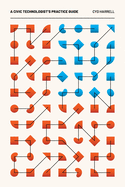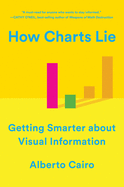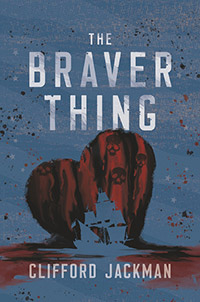Ad Hoc’s 2020 reading list
In place of face-to-face gatherings, one way our teams have stayed connected is by reading and discussing books together. These books have helped us grow our understanding of the history of government services and the forces that shape how digital services are built and used. To wrap up 2020, we wanted to share the highlights from our book clubs and other staff favorites to inspire your winter reading list.
Books relevant to government digital services
A Civic Technologist's Practice Guide
By Cyd Harrell

Cyd Harrell’s book is an excellent practical guide to the world of government technology from the city to the federal level. We’ve had many new team members join Ad Hoc this year, and this book has been a favorite resource for people entering the world of government technology.
Automating Inequality
By Virginia Eubanks

Many Ad Hoc folks found Virginia’s award-winning book to be a powerful study of the ways technology and government digital services can negatively impact people. As a team of product managers, designers, engineers, and researchers working to help the federal government better serve the public, this book was an illuminating tale of the real-life impacts of poorly designed and implemented systems.
Good Services: How to Design Services That Work
By Lou Downe

Written by the former Director of Design for the UK Government, Good Services is an excellent (and visually striking) practical guide to service design, especially in the context of government services. The book is filled with useful case studies and insights into what exactly makes a service “good.”
Radical Help: How We Can Remake the Relationships Between Us and Revolutionise the Welfare State
By Hilary Cottam

Another book with insights from across the pond, Radical Help is a collection of case studies from the UK that examine ways to use human-centered design to create change within siloed government agencies. Hillary Cottam details a new way of thinking about large scale issues and delivering services to people.
How Charts Lie
By Alberto Cairo

How Charts Lie is a primer on understanding how visualizations can distort information and a guide to both read and create better charts. Many of Ad Hoc’s projects involve packaging and presenting complex data, and this book has served as a helpful resource for making that data usable and easy to understand.
Doing Harm: The Truth About How Bad Medicine and Lazy Science Leave Women Dismissed, Misdiagnosed, and Sick
By Maya Dusenbery

Maya Dusenbery’s book explores how the existing healthcare system underserves certain populations, especially women. Ad Hoc teams work on a wide variety of healthcare systems, and books like this have helped our team better understand how systems can create unequal outcomes for different populations.
Books for Fun
When our team needs a break from case studies and handbooks, they pick up a wide range of fiction and nonfiction and share their favorites in our #books Slack channel. Here’s a small sample of what our team was reading this year.
Why Fish Don’t Exist: A Story of Loss, Love, and the Hidden Order of Life
By Lulu Miller

Written by Lulu Miller, a science journalist and the co-host of Radiolab, Why Fish Don’t Exist “is a wondrous fable about how to persevere in a world where chaos will always prevail.”
Here for It: Or, How to Save Your Soul in America; Essays
By R. Eric Thomas

A collection of smart and funny essays by R. Eric Thomas about his life, seeing the world differently, and figuring out who you are (with some pop culture thrown in there too).
How to Do Nothing
By Jenny Odell

This collection of essays investigates who profits from colonizing one of our precious personal resources, our attention. The author explores how we’ve dedicated our fractured attention to idolizing productivity, optimization, and the never-ending hustle, and how we can take back our time for the projects and people who truly matter.
The Braver Thing
By Clifford Jackman

This book manages to offer insights into government while also taking place on a pirate ship in the 1700s. Following the death of their captain, a band of pirates mutinies and explores different ways to govern themselves as they battle the sea and other pirates.
Related posts
- Finding your place on Ad Hoc's research team
- Grow your design career at Ad Hoc
- For remote work, try starting with trust
- Ad Hoc donates laptops to Ukrainian refugees in Poland
- Level up your impact: Making the move into government tech
- Achieving greater impact for Veterans with the Veterans Experience Center
